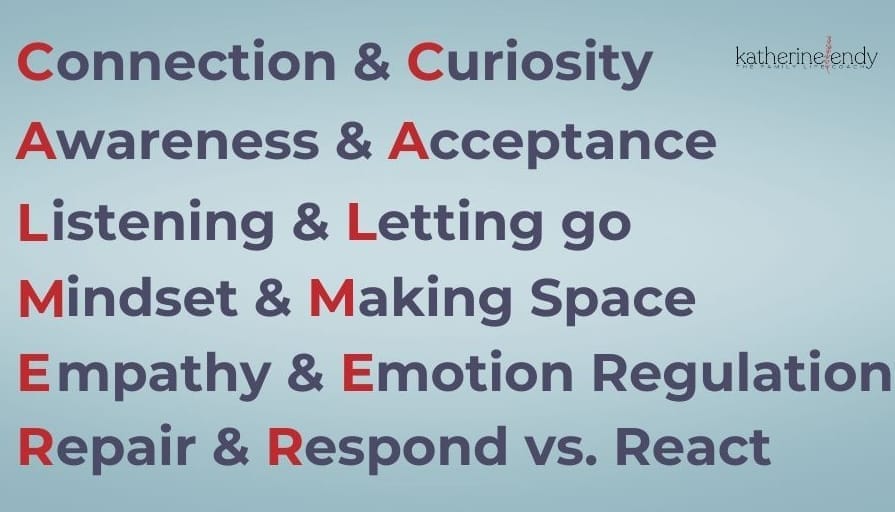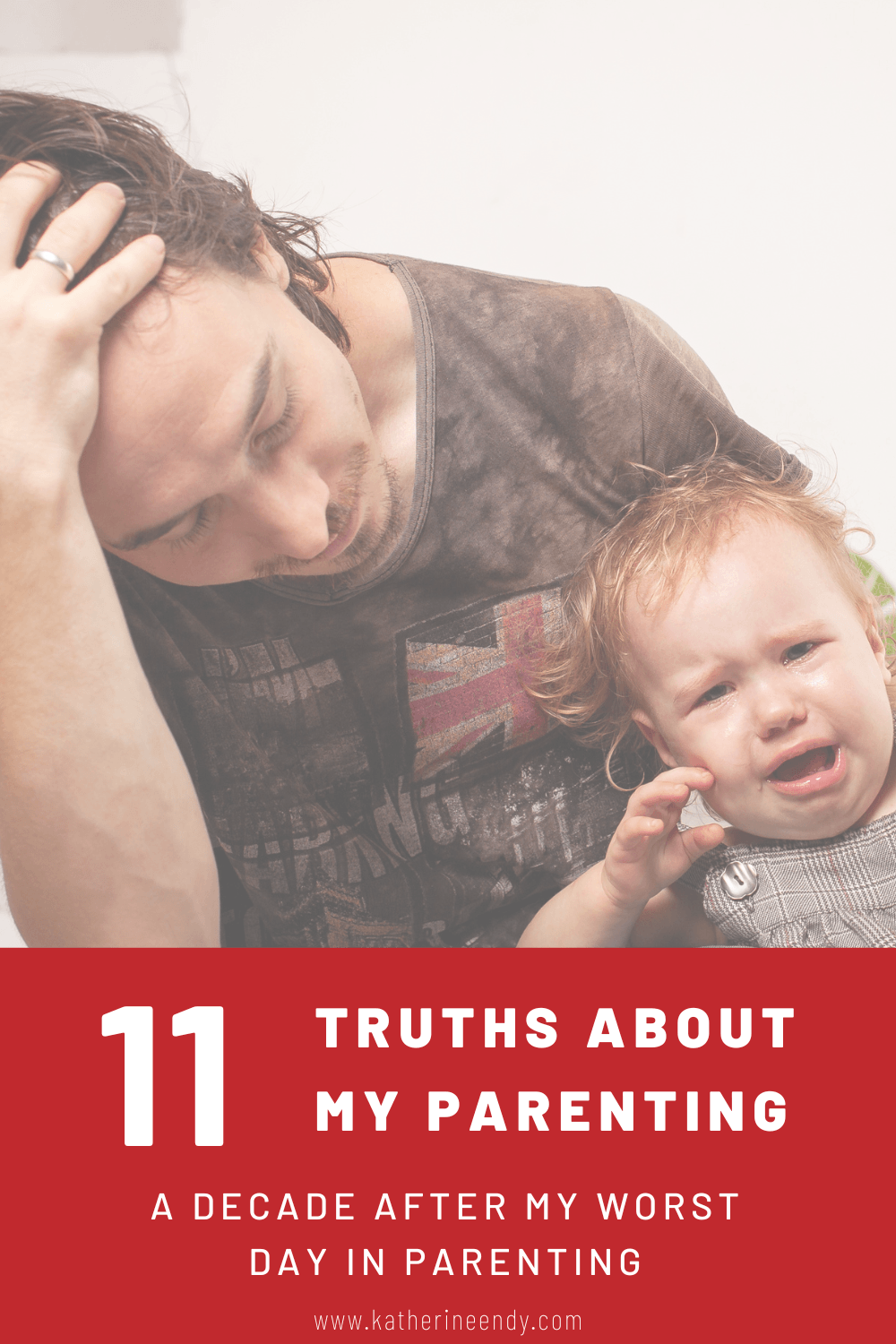What's your parenting personality? Take the quiz to find out!
My Worst Day of Parenting
When my kids were young, the things I read in parenting books, things that were “supposed to work,” were simply NOT WORKING my kid.
I felt defeated, confused, and frustrated.
If the advice from parenting experts did not apply to my kid, what was I supposed to do?
Eventually, over a decade of social work and doctoral dissertation research, I developed the CALMER Parenting Principles.
But before CALMER, I struggled for years.
I can clearly remember my worst day of parenting.
When my oldest child was about seven years old and my other two children were toddlers, they were still really struggling with emotion regulation and, if I’m honest, so was I.
One Saturday afternoon when my husband was working, my child and I got into an hours-long conflict (at least it seemed to go on for hours!) in which they were angry and lashing out at me and, in response, my nervous system got so dysregulated that I could not stay calm enough to help them.
I was yelling, my 7 year old was hitting me, and I was afraid my younger children would get hurt.
I remember calling my husband in tears, begging him to come home from work because I was afraid one of us was going to get hurt. (I still get emotional thinking about that day.)
To add some bitter irony to the story, after my husband came home, I had to pull myself together to attend a parenting workshop. I showed up late, tear-stained, and feeling so embarrassed and ashamed.
Over the next ten years, I learned, researched, and implemented what I now refer to as the CALMER Parenting Principles.
Here is how family life is different for us than it was that day ten years ago when I had to call my husband home from work:
I check in with myself regularly throughout the day. This has become a habit. This is a completely non-judgmental action in which I simply notice how I am feeling and get curious about what I need.
Our kids talk openly. All three are teenagers now and they openly share their anger and sadness, their questions and wonderings.
They ask for our advice. Because we have prioritized our relationship with our kids, rather than focusing on compliance and obedience, our kids trust us enough to ask for our advice.
There is mutual respect. I have a lot to say on the topic of respect in adult-child relationships, but suffice it to say, the fact that my kids treat others with kindness and respect AND that they seek advice from me and my husband lets me know that they understand how to be respectful.
We laugh together. A lot. I don’t know about you, but I don’t remember laughing till I cried with my parents and siblings when I was a kid.
We apologize. We are doing our best to parent in a way that is connected and kind. And sometimes we mess up. When we mess up, we apologize, which teaches kids that adults make mistakes (an important lesson!) and that just because we got upset does not mean it’s ok to treat others poorly.
There are boundaries. There are also negotiations. If we say “no” to something our kids want to do, they have an opportunity to make their case for why they should be allowed to do it. This doesn’t mean we necessarily change our minds, but it does teach them to advocate for themselves and gives them an opportunity to show us what they are capable of.
We enforce boundaries with conversation, not consequences. This is a tough one for a lot of parents in our generation to wrap our minds around because most of us were raised in such a punitive culture, it’s difficult to imagine how to maintain boundaries without using punishment when rules are broken. We do not do this perfectly. But it feels so much more collaborative and connected to my children.
My kids have good manners. I have never insisted on good table manners or reminded my kids to “say please” or “say thank you” when they’re going on a playdate. But because we parent the CALMER way, our kids inherently understand good manners and we have always gotten astonishingly positive feedback from other parents and teachers about our kids’ manners and behavior when they are away from home.
When my kids get dysregulated, I can stay calm. This might be the single most impactful change. Because the truth is, kids get dysregulated. Little kids have tantrums. In some families (like ours), even big kids still have tantrums. Learning to regulate your adult nervous system so you can co-regulate with your child builds trust with your child.
I have not punished my children in over a decade. I haven’t taken away privileges, given a time-out, or insisted on extra chores.
Because I was learning CALMER parenting as I struggled through the early childhood years, my road was long. I was building this CALMER parenting ship as it sailed.
So what are the CALMER parenting principles?

The CALMER Parenting Principles offer a transformative approach to managing challenging behaviors in young children.
Each principle is designed to help parents move from a place of stress and frustration to one of calm, confidence, and connection.
By mastering skills like connection, listening, and emotional regulation, you can:
Reduce parenting stress and burnout.
Break the cycle of yelling, bribing, and punishing.
Respond to challenging behavior with calm and confidence.
Strengthen your bond with your child, even in the toughest moment
Stay tuned for more as we dive into these principles.
If you’re reading this and want help adapting the CALMER Parenting Principles to your unique family life, please consider coaching with me. Learn more and book a free consult call with me by clicking here.
Follow Us
Sign up for Katherine's Monthly Conscious Parenting Newsletter!
Join our mailing list to receive CALMER Parenting Insights, my monthly parenting newsletter to help you shift your perspective and parent consciously. Don't worry, your information will not be shared.
We hate SPAM. We will never sell your information, for any reason.








